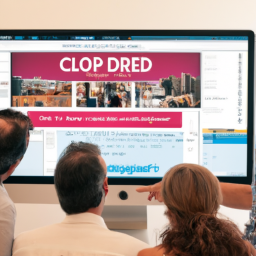Real estate has long been considered a lucrative investment opportunity, but it's traditionally only been accessible to those with significant wealth and experience. However, with the rise of real estate crowdfunding, that's starting to change. In recent years, a growing number of platforms have emerged that allow investors to pool their money together to invest in real estate projects, making it easier for anyone to get in on the action.
For traditional rentals, active investing requires the taxpayer to actively manage the property investment themselves. Property flipping is a popular form of active investing, but it requires a lot of time, effort, and capital to be successful. Real estate crowdfunding, on the other hand, allows investors to passively invest in real estate projects that are managed by experienced professionals.
And with me today is Rajeev Ranade, Partner at Climate Core Capital, a New York-based real estate investment manager that seeks to minimize the carbon footprint of its real estate investments. Ranade believes that real estate crowdfunding is an attractive option for investors because it offers the potential for high returns without the need for significant capital or expertise.
If you're an investor looking to invest in real estate but don't want to buy a property outright, you may be considering crowdfunding platforms like Cardone Capital, Fundrise, or Roofstock. These platforms allow you to invest in real estate projects with as little as $500 or less, and you can choose from a variety of different investment options based on your risk tolerance and investment goals.
A rising number of investment platforms, asset managers, and sponsors are tapping into retail investor appetite for private real estate assets. For example, PeerStreet is a real estate crowdfunding platform that specializes in short-term, high-yield loans for real estate developers. RealtyMogul is another platform that allows investors to invest in a variety of commercial real estate projects, including office buildings, retail centers, and multi-family properties.
The growth of real estate crowdfunding has been driven, in part, by regulatory changes that have made it easier for small investors to participate in private securities offerings. The JOBS Act of 2012, for example, created a new class of securities offerings known as Regulation A+ offerings, which allow companies to raise up to $50 million from both accredited and non-accredited investors.
Another factor driving the growth of real estate crowdfunding is the desire for greater transparency and control among investors. With traditional real estate investments, investors often have limited visibility into how their money is being used and have little say in the management of the property. With real estate crowdfunding, investors have greater transparency and control over their investments, as they can choose which projects to invest in and have access to detailed information about each project.
Despite the many benefits of real estate crowdfunding, there are also some risk to be aware of. Like all investments, there is always the potential for loss, and not all real estate projects will be successful. Additionally, because real estate crowdfunding is a relatively new industry, there is less regulatory oversight than with traditional investments, which can make it harder to spot potential scams or fraudulent schemes.
That being said, real estate crowdfunding is a rapidly growing industry that is making it easier than ever for ordinary people to invest in real estate. Whether you're looking to diversify your investment portfolio, generate passive income, or simply get in on the action of one of the most lucrative investments out there, real estate crowdfunding is definitely worth considering.
Their goal is to make real estate investing accessible for anyone with as little as 100 euros, in 2 minutes and be able to receive rents. This is the vision of Brickowner, a UK-based real estate crowdfunding platform that specializes in residential and commercial properties.
Digital real estate is the fresh, exciting investment frontier for the clever, and let's be honest – you're here to join the savvy. Digital real estate refers to the ownership of virtual assets, such as domain names, websites, and online businesses. These assets can be bought and sold just like physical real estate, and they can generate significant passive income for their owners.
Specifically, the rule suggests that the rent on an investment property should be equal to or greater than 1 percent of the property's sale price. For example, if you buy a property for $100,000, you should aim to rent it out for at least $1,000 per month. This rule of thumb can help ensure that your rental property generates enough income to cover your expenses and provide a reasonable return on investment.
Where One Asset Manager Sees Opportunities in the Current Real Estate Investment Landscape. Brookfield Managing Partner Zachary Vaughan spoke at the 2021 UBS Global Real Estate Conference about where he sees opportunities in the current real estate investment landscape. Vaughan believes that the pandemic has accelerated certain trends in real estate, such as the shift towards e-commerce and the move away from dense urban areas. As a result, he sees opportunities in certain types of real estate, such as logistics and data centers, as well as in certain regions, such as the Sun Belt and Asia.
